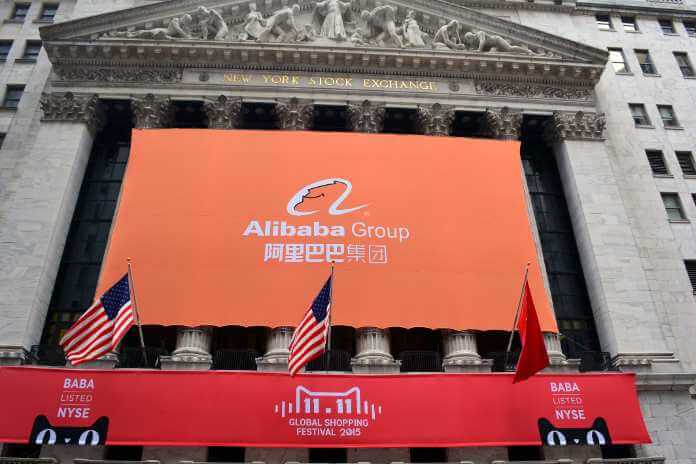The stock of Alibaba Group Holding (NYSE:BABA) has been very stable recently. After hitting a low of $72 in March, it swiftly recovered much of its lost territory, finally reaching a high of $120. Later, though, it was struck with a string of unfavorable news headlines and dropped back to $90. The most devastating claim was that SoftBank (OTCPK:SFTBY) planned to sell a portion of its BABA stock, a sizable holding (about 9% of the float) that had not changed hands in decades. Alibaba’s most recent quarterly earnings surpassed expectations by 13%, although the accompanying surge (about 2%) was moderate. This might be because the SoftBank sale occurred at the same time.
One issue with Alibaba is that the stock hasn’t had many good catalysts. The last genuinely huge news was the fiscal Q1 earnings report, which exceeded forecasts but not enough to move the price. Aside from that, we haven’t heard anything more. China recently reduced lending rates, which influenced the Hang Seng Index (which includes BABA) on Thursday, but there hasn’t been much talk about Alibaba specifically. One catalyst, on the other hand, might arrive shortly.
The Hong Kong Stock Exchange has granted Alibaba dual listing status.
BABA gained clearance for dual primary listing earlier this month. It is dual-listed, but the Hong Kong primary listing will allow its shares to trade on Stock Connect. This tool allows mainland Chinese investors to invest in Hong Kong. Currently, Alibaba is not among the shares eligible for the program, according to the ticker lookup tool on Stock Connect. If it wins access to Stock Connect, Alibaba will be readily accessible for purchase by Chinese investors.
What is Stock Connect?
Stock Connect is a program that connects China and Hong Kong stock exchanges.
These markets were historically independent, according to Goldman Sachs (GS). China’s stance regarding Hong Kong is “one nation, two systems.” Although the city is officially part of China, it works under distinct institutions. China’s grip on Hong Kong has grown in recent years, yet the city-state remains distinct from mainland China in many ways. For example, Hong Kong is seen as capitalist, in contrast to the mainland, which is regarded as “market socialism.”
The stock exchanges in Hong Kong and the mainland are notable differences. Hong Kong’s stock market mostly trades technology stocks such as Alibaba. More state-owned firms are listed on the mainland Chinese stock markets (Shanghai and Shenzhen). Since 2014, mainland Chinese citizens have been allowed to purchase Hong Kong shares through Stock Connect. However, not all Hong Kong stocks are included in the program. BABA is now ineligible, according to the South China Morning Post. This implies that Mainland Chinese (the vast bulk of Alibaba’s consumers) cannot invest. They will be eligible to invest after they have attained dual primary listing.
Alibaba Valuation
As we’ve seen, Alibaba has a significant trigger on the horizon that might boost its stock price.
But take note of the crucial word here: could. New prospective purchasers do not ensure that a stock will grow in value. For it to happen over time, the firm requires an appealing value, growth, or some mix of the two.
Where does Alibaba fall in this equation?
Very nicely. BABA is now trading at:
• 12.6 times adjusted earnings.
• Sales multiplied by 1.95
• 1.5 times the book value;
- 11.48 times the operational cash flow
All of them are relatively small multiples. They all point to the possibility that the stock is undervalued. Alibaba’s expansion has slowed in recent years due to a regulatory crackdown in 2021 and a significant COVID lockout in 2022. As a result, it is not currently increasing significantly. On the other hand, China just announced a new stimulus wave, which buoyed markets on Thursday. Suppose that approach boosts not only equities but also consumer spending. In that case, Alibaba may be able to restore its prior strong growth rates in the future.
Risks and Challenges
Given its low valuation and future potential, Alibaba stock appears to be a good buy at its current pricing. You don’t have to make bold predictions about future growth to get a fair value of $160, which is a considerable premium over today’s pricing. Essentially, assuming Alibaba does not contract, its stock should continue to reward owners in the future. Nonetheless, there are various hazards and obstacles to be aware of, such as:
• Geopolitical unrest. Recently, there have been some tensions between China and the United States. China has been carrying out military drills near Taiwan, which it believes to be part of its territory. Contrary to China’s intentions, the United States has sent lawmakers to meet with Taiwanese leaders.
• Competition. In its first-quarter earnings report, Alibaba highlighted “fierce competition” as a cause for weaker growth. China’s 2021 tech crackdown prompted Alibaba to embrace Tencent’s (OTCPK:TCEHY) WePay app and abandon the “choose one of two” guideline.
• Delisting. Alibaba has just been added to the list of corporations investigated under the Holding Foreign Companies Accountable Act (“HFCAA”). If it cannot or will not comply with the audit standards of the United States, it will be delisted from the NYSE in three years. As a result, some US investors may lose interest, lowering demand for Alibaba shares. Yes, there’s always Hong Kong, but it’s a less liquid market in which some US investors may not want to invest.
The dangers listed above should be considered. So far, geopolitical and delisting dangers have been labeled “hypotheticals,” as they haven’t seriously harmed Alibaba’s main business. According to the company’s management, the competitive risk is significant; it did decrease growth in the first quarter. Nonetheless, Alibaba stock is relatively inexpensive and doesn’t need to increase to be worth $160. Overall, it appears to be a nice buy.
Featured Image : Megapixl © Cpenler

















